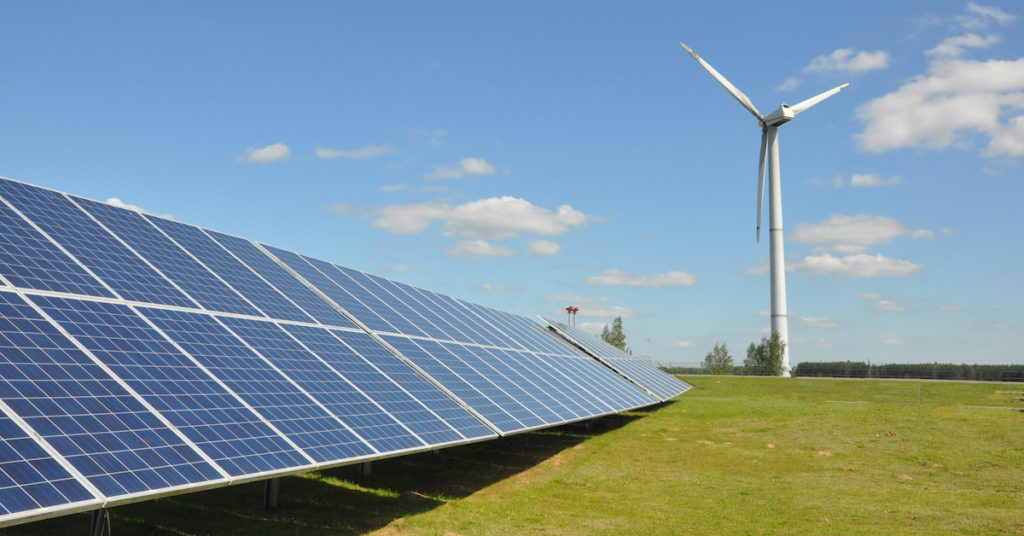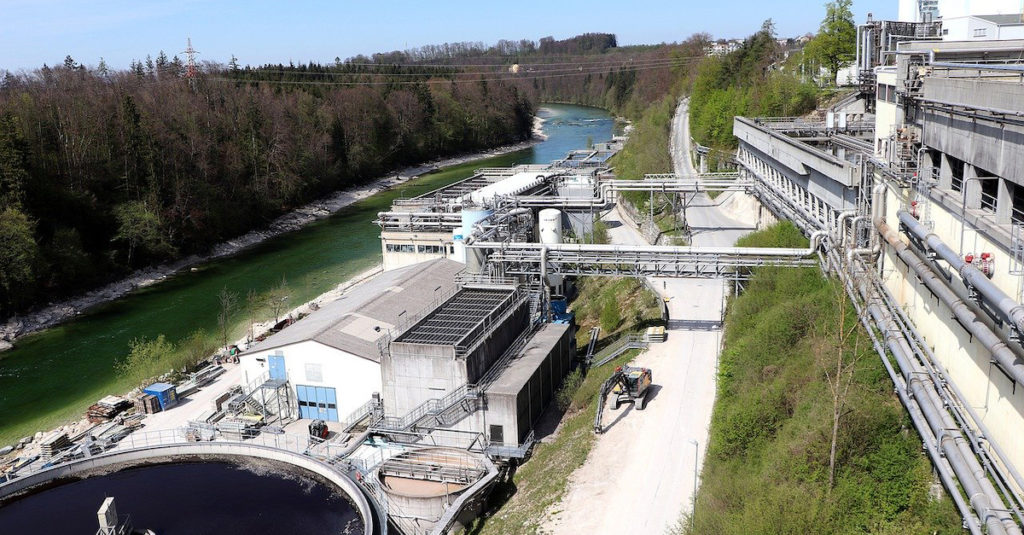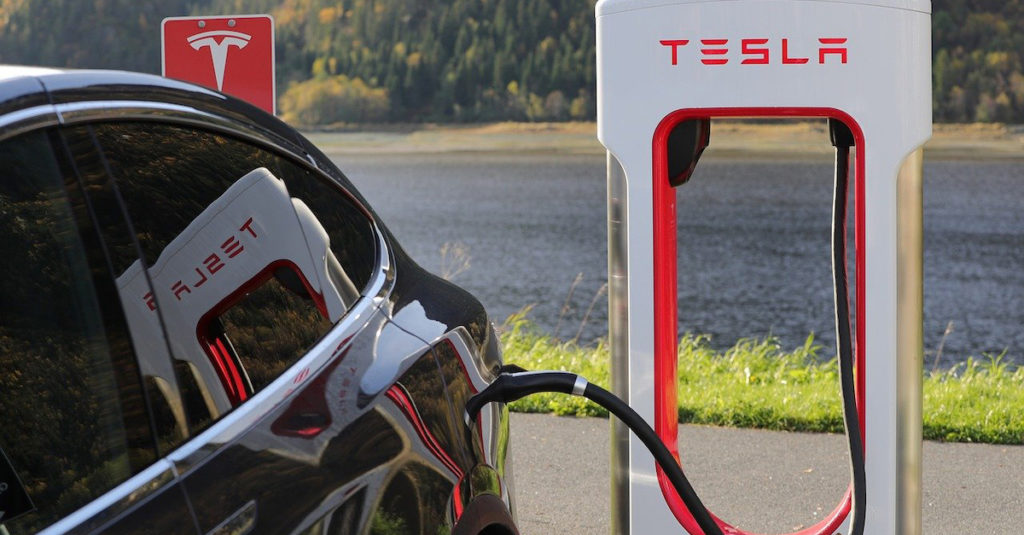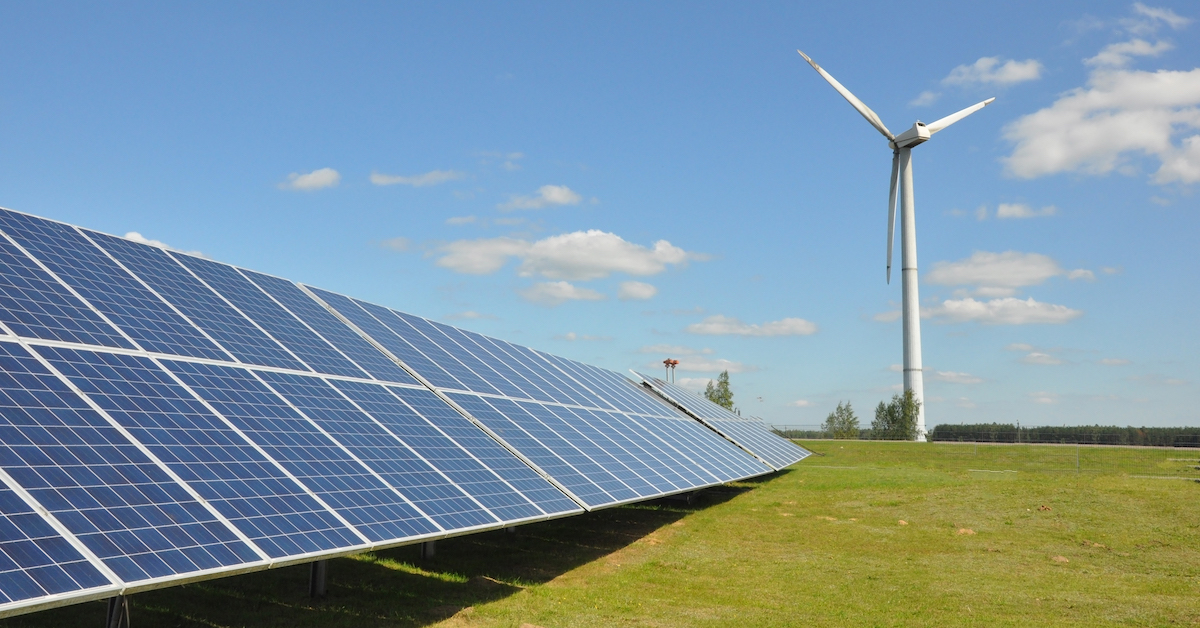
Clean technology, or cleantech is a sector that encompasses the pressing urgency of climate action, the need for innovations to reduce energy consumption, to manage waste more effectively, to embrace renewable energy sources, and to maintain a cleaner and greener environment.
Venture Capital (VC) and corporate investors from around the world placed over USD 25 billion towards the funding of cleantech and energy startups during the 2006-2011 period. In 2014, the market value of the cleantech sector soared to $601 billion, and it is expected to increase to USD 1.3 trillion by 2020. And by 2022, it is expected to double to USD 2.5 trillion, a huge leap in the space of two years.
Whether it’s under the Greta Effect, or wondering how Elon Musk does it, we are here to explore why clean technologies are taking center stage in innovation indexes worldwide and determine the kind of opportunities cleantech innovations present in an energy-challenged country like Lebanon.
What is clean technology or cleantech?
The purpose of developing clean technologies is to create products that are more efficient and cost-effective, to reduce the negative impact of fossil fuels on the environment and to improve the use of natural and renewable resources.
The term ‘cleantech’ was coined by the VC investment community itself to describe companies that deal in energy, water, transportation, agriculture, and manufacturing while significantly reducing negative environmental impact. As funds are allocating greater percentages of their portfolios to cleantech, the many industry verticals that are covered by this umbrella span across Energy (Generation, Storage, Infrastructure, Efficiency), Transportation, Water and Wastewater, Air and Environment, Materials, Manufacturing/Industrial, Agriculture and last but not least Recycling and Waste.
Why the hype?
HSBC Holdings Plc. estimates that USD 80 trillion in financing will be required to wean the world’s economy off fossil fuels. As a price floor is being proposed for greenhouse gas emissions, implementing this cost on emissions will allow clean-energy projects to compete against coal, oil and natural gas.
As the world is working to change the way it creates and consumes energy, cleantech startups are figuring out how to build smarter homes and smarter cities while working on off-grid solar electricity solutions, energy-efficient appliances, zero-energy buildings, car-sharing services, streamlined recycling plants using robotics and machine learning, drones that monitor air quality, and the list goes on.
All this effort falls into the premise that two Earths will be needed to sustain our current lifestyle by 2030, unless we figure out a smarter and cleaner way of living. As the demand for cleaner energy soars, opportunities to innovate and invest in the cleantech market are ever growing.
A quick dip in the global numbers
An estimated USD 41 billion of VC funds has been injected in cleantech startups worldwide from 2009 to 2014, almost double the amount of the previous five years, according to a report by the Investment Development Authority of Lebanon (IDAL). Also, the number of VC cleantech deals reached 455 in 2016, accounting for 7.6% of total venture capital deals worldwide.
In 2008 alone, venture investments from around the world reached over USD 8.4 billion. And by 2014, Finland and the U.S. had become known as the leading countries in Global Cleantech Innovation. Since then, China, a hidden player, has rapidly become ever-present in the cleantech industry, accounting for 43% of the USD 61.1 billion invested in the first quarter of 2018.
Cleantech companies that are gaining traction include BBOXX – a British startup that sells plug-and-play solar power systems to consumers, who raised a USD 50 million Series D in August; and Energy Vault – a Swiss startup developing new batteries for effective renewable energy storage, who raised a USD 110 million Series B in August as well. Other cleantech startups – Sunverge Energy, Form Energy, Enpal, Dens, and Wellsun, to name a few, have all raised rounds since July.

The cleantech investment scene in the MENA region
According to The International Renewable Energy Agency (IRENA), in 2016, USD 11 billion were invested in renewable energy across the Arab region, compared to just USD 1.2 billion in 2008, a nine-fold increase.
Regional finance forecaster The Middle East Economic Digest estimates that USD 100 billion worth of renewable projects are currently under study, design, or in execution in the region.
A new report by the Middle East Solar Industry Association values the region’s solar market alone at USD 20 billion and forecasts another USD 15 billion worth of projects coming online within the next 5 years.
Right now, the MENA region is incubating its first generation of cleantech entrepreneurs who are pioneering cleantech startup solutions in the region, the majority of which were created in the last five years with founders that are 30 years old or younger.
Impact of clean technologies on the MENA region
Governments in the Middle East have spent billions on renewable energy and cleantech projects over the years.
The UAE recently established the USD 27 billion Dubai Green Energy Fund. The fund is part of the country’s wider cleantech and green energy investment program. The UAE produces 58% of the region’s solar energy and recently opened Noor Abu Dhabi, the world’s largest solar project. Noor generates nearly 1.2 gigawatts of electricity, enough to provide power for 90,000 people annually. The project contains 3.2 million solar panels and is set to reduce Abu Dhabi’s CO2 emissions by 1 million metric tons.
Supported by an IFC investment of USD 69 million, Jordan built the 117 megawatts (MW) Tafila Wind Farm in 2013. At completion, the Tafila Wind Farm’s generated electricity accounts for 6.5% of Jordan’s renewable energy target of 1,800 MW by 2020, generating an estimated annual 400-gigawatt hours. The project’s sponsor – the Jordan Wind Project Company (JWPC), is the first private company in the Mediterranean to use wind power to generate electricity, helping Jordan address its twin challenges of dependence on imported energy and high fossil fuel prices.
Another example is Egypt, who intends to increase the supply of electricity generated from renewable sources to 20% by 2022 and 42% by 2035, with wind providing 14 %, hydropower 2%, and solar 25% by 2035. The private sector is expected to deliver most of this capacity.
The Levant region (Lebanon, Syria, Jordan, and Palestine) rates water as the top technology for the future followed by wind technology, alongside energy efficiency and green buildings, as awareness of water’s potential grows. The Levant differs from the GCC in that it rates wind and carbon capture and storage higher, while the GCC rates energy efficiency, green buildings, and waste management higher.
The Lebanese clean technology landscape – or lack thereof
Hydropower is the most established renewable energy resource in Lebanon and contributes to around 4.5% of the energy mix with a nominal capacity of 280 MW. However, hydraulic energy production has largely been inconsistent due to intermittent rainfalls and poor maintenance.
Wind energy is an untapped resource in Lebanon with extremely restricted production. According to the Wind Atlas published in 2010, Lebanon has the potential to produce approximately 5,400 MW of wind energy.
Solar energy is also a valuable resource in Lebanon. With around 3000 hours of sunshine, the addition of this energy source to the national grid could greatly contribute to the growth of clean energy in Lebanon. Solar energy currently represents around 0.26% of the country’s energy mix.
What does this mean for Lebanon?
In a country burdened with challenges that cover the entire cleantech spectrum, innovative entrepreneurs are presented with a surplus of opportunities, topped with scaling potential to the MENA region whose economic growth, rising population and increased urbanization are powering the demand for clean technologies.
Lebanese startups have access to one of the most competitive highly skilled labor forces in the region, a flourishing scientific community and a supportive startup ecosystem.
Startups in the cleantech sector have started to bud in the local ecosystem from car-sharing solutions to drone solutions, to cleantech solutions using AI and IoT to bio-chemical innovations in managing waste.

Here’s what Lebanese VCs are looking to invest in
Needless to say, local VC funds are keeping their eyes open for innovative startups with cleantech solutions to eminent challenges especially that Lebanon has a high potential to move away from oil as the main fuel for energy and rely more on renewable energy sources. Innovative solutions could be the only resource for challenges in waste management, transportation and emission reduction, making cleantech startups more attractive to investors.
Market opportunities lie in these 5 cleantech sectors, including Water and Wastewater Management, Agriculture, Solid Waste Management, Transportation, and Energy.
Cleantech in Water and Wastewater Management
Although the water supply is higher than the water demand in Lebanon, pollution, mismanagement and poor infrastructure have restricted the ability of the government to meet water demands. Water management solutions are one of the dominating opportunities in the industry covering monitoring forecasts and process controls, wastewater treatment, metals removal, etc.
Cleantech in Agriculture
While Lebanon’s moderate climate, rich soil and abundant water resources provide it with key enablers to stand out in the region as an ideal location for agricultural activity, land scarcity, climate change and malpractice call for innovation in employing technology to a conventional sector, in creating solutions incorporating innovative hardware and software, in introducing AI, and IOT to agriculture, etc.
Cleantech in Solid Waste Management
Uncontrolled dumping of waste all over the country has caused water and soil contamination, numerous health and environmental problems and increased GHG emissions. There is money to be made from this waste with opportunities in source reduction and recycling, disposal capacity and second material market, waste management, and transportation, using the energy content of waste, etc.
Cleantech in Transportation
The Lebanese transportation system relies mainly on private vehicles, which account for around 80% of private passenger cars. Public transport systems are inefficient and cost ineffective. The system has a significant negative impact on the environment, health, economy, and social dynamics. Innovation opportunities span from public transportation solutions to energy-efficient vehicles, the use of big data in transport management, smart car-sharing solutions, improving infrastructures, etc.
Cleantech in Energy
Lebanon is a net energy importing country. Contradicting the low presence of renewable energy technologies in the country, Lebanon possesses considerable high renewable energy sources, more than many other countries in the region. Opportunities to innovate lie in energy creation solutions (wind, solar, water, biomass), energy efficiency and optimization, resource management systems, etc.
The way forward
Lebanese startups have already embarked on the cleantech journey while scientists and innovators are slowly moving their innovations outside the lab into the commercial market. The local ecosystem is catching up with specialized programs to support the cleantech sector.
The increasing demand for clean technologies and the rise in the commercialization of the industry could make way for a new age in cleantech. The need for more sustainable technologies that help sustain and nurture our planet is more important than ever.
Cleanergy Accelerator Program
Berytech is catalyzing cleantech innovations through a yearly three-phase program that allows cleantech entrepreneurs grow their startup from an idea into a scalable business. With the support of The Kingdom of The Netherlands, Berytech designed and developed the Cleanergy program to make sure Lebanon has the most competitive companies innovating in clean technology. Learn more about the Cleanergy Accelerator Program.
Resources
- https://www.naseba.com/content-hub/article/cleantech-continues-attract-capital-middle-east/
- https://www.albawaba.com/news/mapping-middle-easts-100-billion-clean-energy-revolution-1312707
- https://valuer.ai/blog/everything-you-need-to-know-about-cleantech/
- https://www.ifc.org/wps/wcm/connect/7fd21a17-77b8-4abc-a9ea-840d6512c4ab/1StoriesOfImpact-wind-TafilaWindFarm_Jordan.pdf?MOD=AJPERESandCVID=lpnlv.P
- https://www.export.gov/article?id=Egypt-Renewable-Energy
- https://lb.boell.org/en/2019/03/01/renewable-energy-lebanon-can-country-embrace-its-resources-sustainably
- https://wamda-prod.s3.amazonaws.com/resource-url/5e470b9405a483a.pdf








